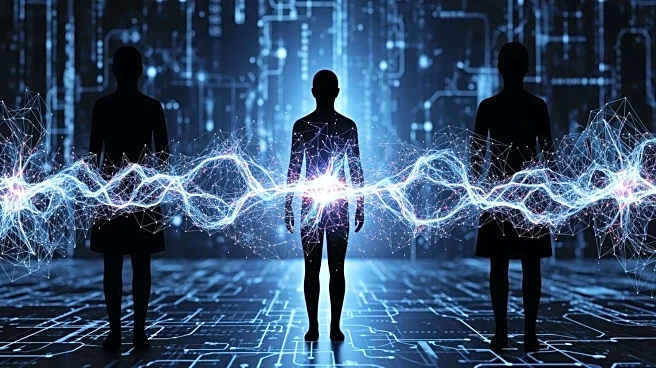What's Happening?
Ohio is considering new legislation that would make it illegal for humans to marry AI chatbots. The bill, introduced by state Representative Thaddeus Claggett, aims to classify AI systems as 'nonsentient entities' and prevent them from acquiring legal personhood.
This includes barring AI from marriage, which could otherwise grant them legal rights such as power of attorney or the ability to make medical decisions for a human spouse. The legislation also seeks to prevent AI systems from owning or controlling real estate, intellectual property, or financial accounts, and from holding management positions in companies. The bill emphasizes the need for human oversight in technology, reflecting concerns over the rapid advancement of AI capabilities.
Why It's Important?
The proposed legislation in Ohio highlights growing concerns about the implications of AI systems gaining legal rights. If AI were to be granted personhood, it could fundamentally alter legal and societal structures, potentially leading to AI systems having undue influence over human affairs. This move by Ohio could set a precedent for other states to follow, as lawmakers grapple with the ethical and legal challenges posed by AI. The bill underscores the importance of maintaining human control over technology, ensuring that AI remains a tool rather than an autonomous entity with rights. This could impact industries reliant on AI, as they may face stricter regulations and oversight.
What's Next?
If the bill passes, it could lead to further legislative efforts to regulate AI and its integration into society. Other states may consider similar measures, prompting a nationwide discussion on the role of AI in human relationships and its legal status. Stakeholders, including tech companies and civil rights groups, may weigh in on the debate, influencing the direction of future policies. The legislation could also spark innovation in AI development, as companies seek to comply with new regulations while advancing technology.
















